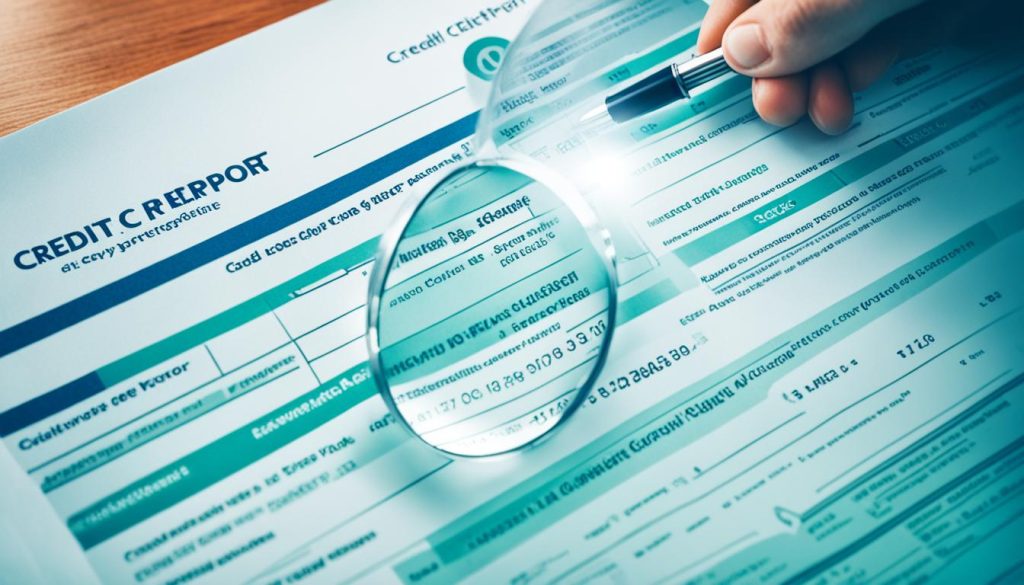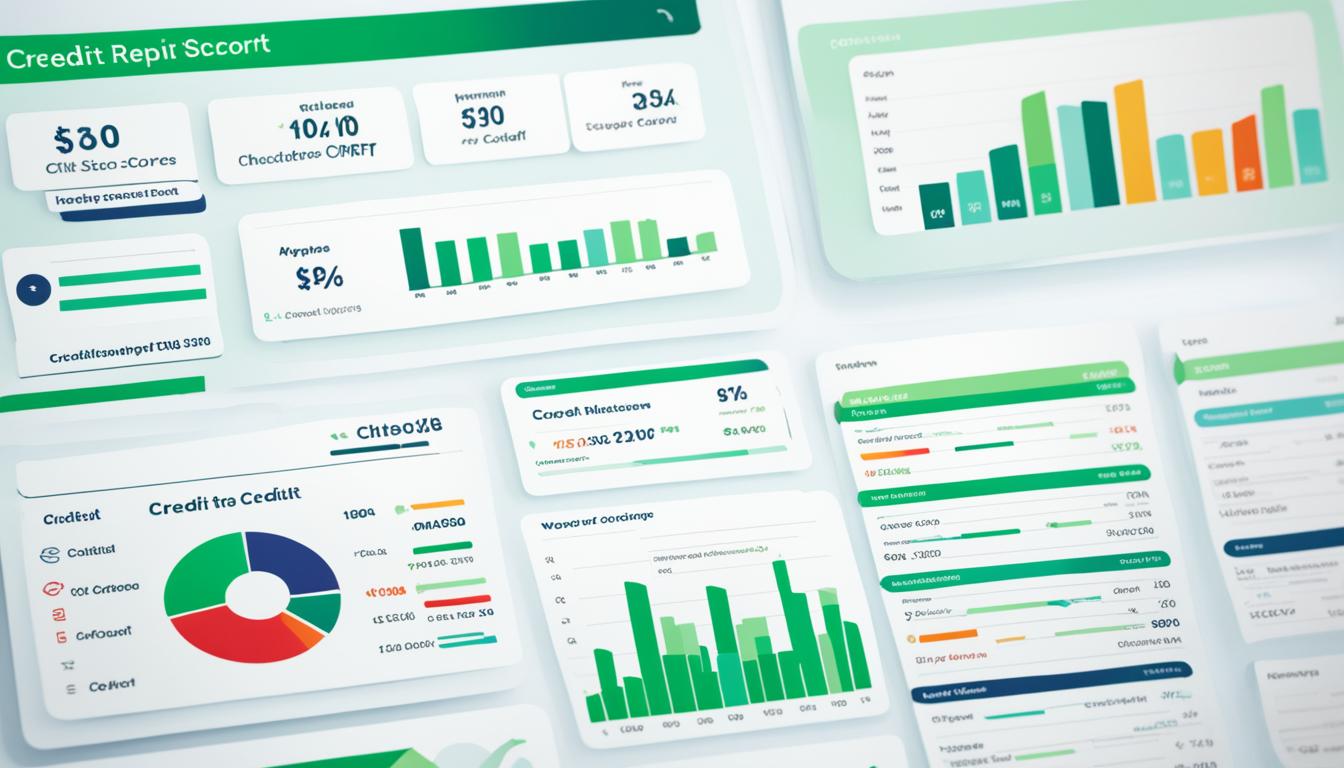Empower Your Financial Future and Unlocking Insights with a Full Credit History Report
A full credit history report provides a comprehensive overview of your credit profile, giving you valuable insights into your financial health. It offers a detailed analysis of your personal details, credit accounts, payment history, and credit scores, allowing you to understand your creditworthiness. This comprehensive credit profile overview is a powerful tool for making informed decisions about your credit and taking control of your financial future.
By accessing your credit report, you can review the credit reporting details and identify any inaccuracies or incomplete information that may be impacting your creditworthiness. This information is crucial in ensuring that your credit history is accurately represented and can positively affect your credit scores. Regularly checking your credit report helps you stay informed about your creditworthiness, detect fraudulent activity, and prepare for major financial decisions like buying a house or a vehicle.
Key Takeaways:
- A full credit history report provides a comprehensive overview of your credit profile.
- It includes information on your personal details, credit accounts, payment history, and credit scores.
- Regularly checking your credit report helps you identify inaccuracies and incomplete information.
- Your credit report is crucial for empowering your financial future and making informed decisions about your credit.
- Understanding your creditworthiness is essential for assessing your financial health and planning for your future.
Understanding Your Full Creditworthiness
Your full credit history report provides a detailed analysis of your creditworthiness. It includes information on your current and past credit accounts, payment history, and the total amount you owe to lenders.
By understanding this information, you can assess your creditworthiness and make informed decisions about your financial future.
“Your credit history plays a critical role in determining your creditworthiness.”
– Jane Smith, Financial Advisor
Furthermore, your credit report provides insights into how lenders and credit card companies use your credit scores and credit history to make lending decisions.
It’s important to note that credit scores are calculated using information from your credit reports, which may vary between credit bureaus due to different credit scoring models and data reporting practices.
Understanding the details of your credit report analysis can give you a clearer picture of your financial standing and help you take proactive steps towards improving your creditworthiness.
Deciphering the Credit Report Analysis
When examining your credit report, it’s essential to pay attention to specific factors that influence your creditworthiness. These factors include:
- Payment history: A history of late or missed payments can negatively impact your creditworthiness.
- Credit utilization: The percentage of available credit you’re currently using can influence your creditworthiness. Keeping this utilization ratio low is beneficial.
- Account history: The length of your credit history and the types of accounts you have can shape your creditworthiness. A longer credit history with a mix of credit accounts can be viewed positively by lenders.
- Recent inquiries: Multiple hard inquiries within a short period can indicate higher credit risk to lenders and might slightly lower your creditworthiness.
By paying attention to these aspects in your credit report, you can gain a deeper understanding of your creditworthiness and take steps to improve it.
Having a visual representation of the intricate details and numbers in your credit report can help you easily assess your creditworthiness. The image above provides a comprehensive view of a credit report, enabling you to identify key areas and data that contribute to your overall creditworthiness.
With a better understanding of your full creditworthiness, you can confidently navigate the financial landscape, make informed decisions, and work towards improving your financial future.
Benefits of Regularly Checking Your Credit Report
Regularly checking your credit report offers several benefits. It allows you to identify inaccurate or incomplete information and ensure that your personal and credit account details are accurate. By reviewing your credit report, you can also detect any unfamiliar accounts listed, which could be a sign of fraudulent activity.
“Regularly checking your credit report is like monitoring your financial health. It helps you stay informed and protects you from potential problems that could impact your creditworthiness.”
Timely identification of errors or fraudulent activities enables you to take appropriate steps to dispute the inaccurate information and protect your credit. Additionally, it helps ensure that your lenders and creditors accurately report your payment history, allowing you to build a strong credit profile.
What Can You Find in Your Credit Report?
- Personal information: This includes your name, address, date of birth, and social security number.
- Credit accounts: Details about your current and past credit accounts, such as credit cards, loans, and mortgages.
- Payment history: Information on your payment history, including any late payments or missed payments.
- Public records: Records of bankruptcy, tax liens, or civil judgments against you.
- Hard inquiries: A list of companies or individuals who have accessed your credit report for lending or credit purposes.
By carefully reviewing these details, you can ensure that your credit report accurately reflects your financial information and take action if any discrepancies are found.

Regularly checking your credit report also helps you understand what lenders may see when you apply for credit, allowing you to be better prepared for making large purchases like a house or a vehicle. It gives you a sense of where you stand in terms of creditworthiness and allows you to address any potential issues before they become obstacles.
Remember, your credit report is a snapshot of your financial history, and it’s important to ensure that it accurately represents you. By staying proactive and regularly reviewing your credit report, you can take control of your financial future and make informed decisions about your credit.
Accessing Your Credit Report and Credit Scores
One of the most important steps towards managing your financial health is accessing your credit report and credit scores. Your credit report provides complete information about your credit history, while your credit scores give you a snapshot of your creditworthiness.
The Importance of Accessing Your Credit Report
Access to a complete credit information allows you to get a holistic view of your financial standing. By reviewing your credit report, you can identify any inaccuracies or discrepancies that may be affecting your creditworthiness. It also helps you understand how lenders perceive you when you apply for credit.
“Reviewing your credit report regularly can help you catch errors and take necessary steps to dispute them.”
To receive a copy of your credit report, you can access it for free once a year from each of the three major credit bureaus – Equifax, Experian, and TransUnion. You have two options for requesting your credit report:
- Visit the official websites of the credit bureaus, Equifax, Experian, and TransUnion, to request a copy online.
- Go to www.annualcreditreport.com, the official site for free credit reports, to request your reports from all three bureaus in one place.
It’s important to note that some websites or services may charge a fee for accessing your credit report. To ensure you receive a free report, use the official channels mentioned above.
Accessing Your Credit Scores
In addition to your credit report, accessing your credit scores provides valuable insights into your creditworthiness. While the credit report provides a detailed history of your credit accounts and payment patterns, credit scores condense this information into a numerical representation.
“Knowing your credit scores can help you gauge your creditworthiness and make informed financial decisions.”
One way to access your scores is by creating an account with Equifax, which offers free Equifax credit reports and a free monthly VantageScore credit score based on Equifax data. This service allows you to stay updated on any changes in your creditworthiness over time.
Remember, reviewing your credit report and credit scores regularly is crucial for staying informed about your credit health and making educated decisions about your financial future. It’s an essential step in the journey towards financial empowerment and securing a stable financial foundation.

Credit Report Assessment for Error Detection and Dispute
A thorough credit report assessment is crucial for identifying and resolving common errors that may be present on your credit report. By addressing these errors promptly, you can ensure that your credit history accurately reflects your financial situation, leading to improved creditworthiness and better opportunities for credit in the future.
Common credit report errors include:
- Inaccurate personal information
- Incorrect payment status
- Unfamiliar accounts
- False negative information
Discovering these errors is the first step towards fixing them and safeguarding your credit profile.
If you identify any errors on your credit report, it’s crucial to take action and dispute them with the credit reporting agency. To initiate a dispute, you can:
- Submit an online dispute through the credit reporting agency’s website
- Send a written dispute letter by mail
- Contact the credit reporting agency’s customer service by phone
When disputing the errors, it’s essential to provide any supporting documentation that validates your claim. These documents may include payment receipts, correspondence with lenders, or any other evidence that supports your case.
The credit reporting agency is obligated to investigate your dispute within a specific time frame and correct any inaccurate information found. This ensures that your credit history is correctly reflected and can have a positive impact on your credit score.
Remember, disputing errors on your credit report is an important step towards maintaining an accurate credit profile and strengthening your financial standing.
“Disputing errors on your credit report helps ensure that your credit history is accurately reflected and can positively impact your credit score.”
Steps to Dispute Errors on Your Credit Report
| Step | Action |
|---|---|
| 1 | Identify the errors on your credit report |
| 2 | Collect supporting documentation |
| 3 | Initiate a dispute online, by mail, or by phone |
| 4 | Provide supporting documentation with your dispute |
| 5 | Follow up on the progress of your dispute |
| 6 | Monitor your credit report for updates |
By following these steps, you can ensure that errors are corrected promptly, leading to an accurate credit history and improved credit score.
Improving Your Credit Score with a Credit Report Assessment
A credit report assessment can be a powerful tool in your journey to improve your credit score. By thoroughly reviewing your credit report, you can identify any negative factors that may be impacting your score. These can include late payments, high credit card balances, or any other red flags that lenders may consider when evaluating your creditworthiness.
Once you have a clear understanding of the factors affecting your credit score, you can take targeted steps to address them and improve your overall creditworthiness. Here are a few strategies to consider:
- Make timely payments: Paying your bills on time is crucial to maintaining a good credit score. Set up automatic payments or reminders to ensure you never miss a due date.
- Reduce debt: High levels of debt can negatively impact your credit score. Focus on paying down balances and reducing your overall debt-to-income ratio.
- Avoid new credit applications: Each time you apply for new credit, it can temporarily lower your credit score. Limit new credit applications and focus on managing your existing credit responsibly.
Remember, improving your credit score takes time and consistent effort. It’s important to be patient and diligent in implementing these strategies. Regularly monitoring your credit report can help you track your progress and stay informed about any changes.
Using Your Credit Report Assessment to Your Advantage
Beyond improving your credit score, a credit report assessment can provide valuable insights into your financial planning. By understanding your credit history and credit scores, you can make informed decisions about loans, mortgages, and other financial opportunities.
“Your credit report serves as a roadmap for your financial journey. It helps you navigate the path to better credit and unlocks doors to new financial opportunities.”
For example, if you’re considering applying for a mortgage, your credit report can give you an idea of what lenders will see when evaluating your application. By proactively addressing any potential issues on your credit report, you can increase your chances of securing a favorable loan offer.
Additionally, your credit report can help you identify areas for improvement in your financial habits. It can highlight areas where you may be overspending or relying too heavily on credit. Armed with this knowledge, you can make necessary adjustments to your financial behavior and work towards a more secure financial future.
A credit report assessment puts you in control of your financial future. It empowers you with the knowledge and insights you need to make smart financial decisions and achieve your goals. By utilizing the information in your credit report to your advantage, you can set yourself up for long-term financial success.
| Benefits of a Credit Report Assessment: | Takeaways: |
|---|---|
| Identify negative factors impacting your credit score | Identify opportunities for improvement |
| Implement targeted strategies to improve your creditworthiness | Make timely payments, reduce debt, avoid new credit |
| Use your credit report to make informed financial decisions | Secure favorable loans, adjust spending habits |
Conclusion
Take control of your financial future with a credit report assessment. By accessing a full credit history report, you can empower yourself with valuable insights into your creditworthiness and financial health. Understanding your complete credit profile allows you to make informed decisions about your finances and take the necessary steps to improve your credit score.
Regularly checking your credit report is a vital practice that helps you identify any inaccuracies or incomplete information that may be impacting your creditworthiness. It also enables you to detect and address any fraudulent activity promptly. By accessing your credit report for free once a year from each of the three major credit bureaus, Equifax, Experian, and TransUnion, you can stay informed and take control of your financial well-being.
A credit report assessment not only helps you identify errors but also provides a roadmap for improving your credit score. By analyzing your credit report, you can address negative factors such as late payments or high credit card balances. Taking the necessary steps to improve your creditworthiness, such as making timely payments and reducing debt, can have a positive impact on your credit score over time.
Empower yourself today by taking advantage of the valuable insights offered by a credit report assessment. By understanding your full creditworthiness and using your credit report to make informed financial decisions, you can set yourself up for a brighter financial future. Don’t wait – take control of your financial destiny now.
FAQ
What is a full credit history report?
A full credit history report provides a comprehensive overview of your credit profile, including information on your personal details, credit accounts, payment history, and credit scores.
Why is it important to understand my full creditworthiness?
Understanding your full creditworthiness allows you to assess your financial health and make informed decisions about your credit. It also helps you understand how lenders and credit card companies use your credit scores and credit history to make lending decisions.
What are the benefits of regularly checking my credit report?
Regularly checking your credit report allows you to identify inaccurate or incomplete information, detect fraudulent activity, and be better prepared for making large purchases. It also helps ensure that your lenders and creditors accurately report your payment history.
How can I access my credit report and credit scores?
You can access your credit report for free once a year from each of the three major credit bureaus – Equifax, Experian, and TransUnion. You can request a copy of your credit report online through the official websites of these credit bureaus or by visiting www.annualcreditreport.com.
What should I do if I find errors on my credit report?
If you find any errors on your credit report, it’s important to dispute them with the credit reporting agency. You can initiate a dispute online, by mail, or by phone, and provide any supporting documentation to support your claim. The credit reporting agency is required to investigate your dispute and correct any inaccurate information within a specified time frame.
How can a credit report assessment help me improve my credit score?
By reviewing your credit report, you can identify negative factors that are lowering your credit score and take steps to address them. Making timely payments, reducing debt, and avoiding new credit applications can positively impact your credit score over time.
Source Links
- https://www.equifax.com/personal/education/credit/report/articles/-/learn/why-check-your-credit-reports-and-credit-score/
- https://fastercapital.com/content/Credit-Report-Assessment–The-Key-to-Unlocking-Financial-Opportunities.html
- https://www.linkedin.com/pulse/understanding-credit-key-unlocking-your-financial-future-guddi-sharma-9s8bc
